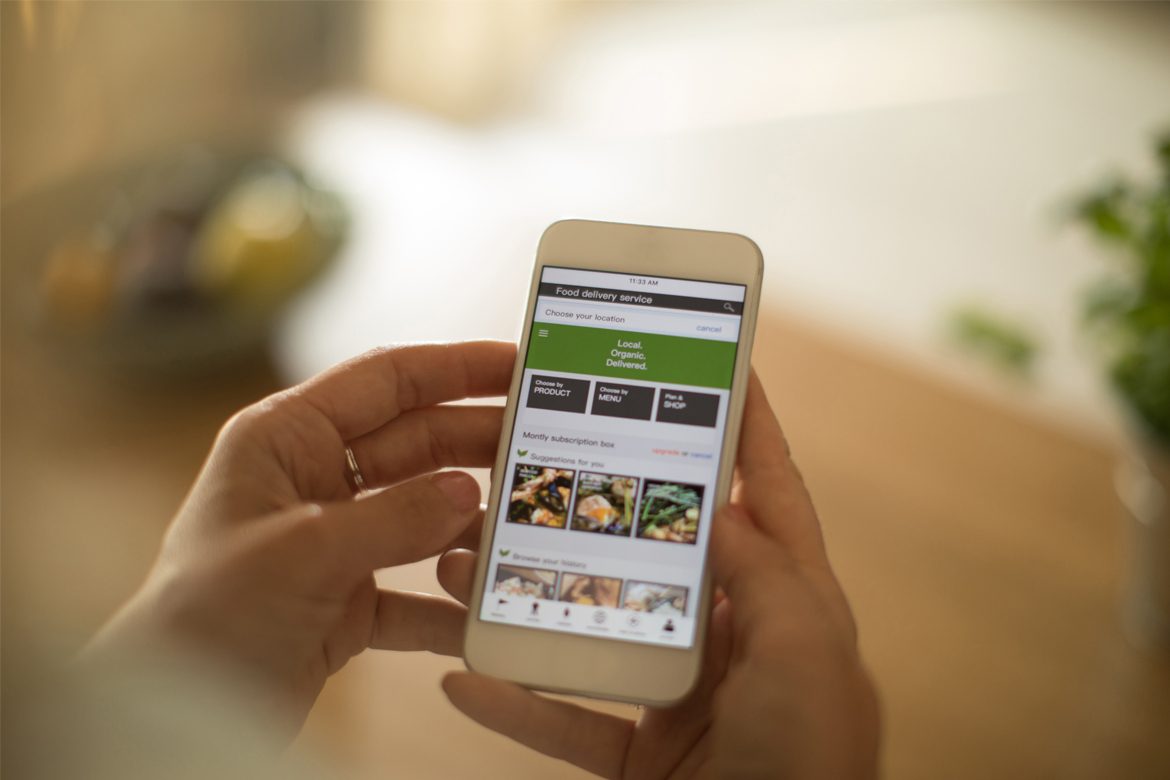- Korea has one of the strongest and most advanced food delivery industries in the whole world. In 2017, the volume of food delivery market revenue reached around 1,391 million USD with constant growth every following year.
- Food delivery in Korea expanded its market by bringing in the ‘subscription economy’ concept. One Do Daily offers subscription services of coffee beans, Doozy Pork runs a subscription service that provides freshly packed pork to cook every month and Dole Korea started a subscription delivery service for its imported and produced foreign fruits and vegetables.
- Shared kitchens in Korea aim to allow businesses, especially those in their early stages, to focus on cooking only. With all the necessary infrastructure offered, participants who run their food and beverage business get less burdens from rising wages and rents.
Fostering convenience through foodtech
This article is the first episode of two article series about foodtech industry in Korea. The first episode illustrates the advanced platforms of Korean foodtech, and the upcoming second part will cover the healthy outcomes of it.
Delivery service symbolising convenience in Korean foodtech
Convenience is the key to success in Korean foodtech, and Korea is well-known for its wide array of delivery services. You can have any type of food you can possibly imagine, delivered straight to where you are, irrespective of time and place. You can have them delivered to your home, office, university campus, or even outdoors like parks. Korea has one of the strongest and most advanced food delivery industries in the whole world. In 2017, the volume of food delivery market revenue reached around 1,391 million USD with constant growth every following year. The revenue in food delivery industry is estimated to reach 2,570 million USD in 2020, with expected annual growth rate of 8.9% within the years 2020 and 2024 (eServices Report 2020 – Online Food Delivery. Statista).
The COVID-19 outbreak in February 2020 boosted a spike in food delivery uses. Food delivery market has been recognised as one of few industry sectors that successfully thrived despite the pandemic in Korea. The number of the orders that Vroong, a food delivery platform, received increased 185% in February and 179% in March. Not only meals but also drinks, desserts, fruits and even groceries from supermarkets are now all delivered, within approximately 30 minutes, day and night.
Followed by the rush on food deliveries, the delivery platforms are implementing advanced technology in their industries. Woowa Brothers Corp., the operator of a delivery mobile application, introduced an artificial intelligence (AI) delivery service for the first time. The AI-recommended system automatically assigns the most suitable delivery person considering the types of the food and the distances between the delivery person, restaurant and the customer. To find the most optimal route for each delivery, the AI goes through the calculations of the orders received for between 5 million and 50 million times every second. The system also enhances the safety of delivery people. They can keep themselves from struggling to accept incoming calls while driving and instead, keep their eyes on the road. Woowa Brothers Corp. said they are offering some incentives to the delivery people who use the AI-recommended system to encourage its wide implementation.
Food subscription becomes a new trend
Taking a step forward, food delivery in Korea expanded its market by bringing in the ‘subscription economy’ concept. Food subscription services especially fulfil people’s demand for high conveniences and contactless purchases after the COVID-19 outbreak.
One Do Daily (‘wondoo’: pronounced as ‘one do’, a word for “coffee bean” in Korean) offers subscription services of coffee beans especially to companies and offices. They deliver diverse beans from well-known cafés in Korea at low prices: a 5kg of coffee beans means a cup of coffee being served at 500 KRW (50 cents). In addition, companies that subscribe to the service receive a free coffee machine with a regular expert-visit for the machine maintenance.
Customers can also have fresh meat regularly delivered to their house. Doozy Pork runs a subscription service that provides freshly packed pork to cook every month. Because the pork is regularly delivered in a small portion, they are fresher than buying a large amount and keeping them in a freezer. Dole Korea, which imports and produces foreign fruits and vegetables, also started a subscription delivery service. Customers can choose from a “slim box” and a “single box” which are for 1-person households, or a “double box” for two people, as well as a “family box” for four or more people. Another option could be a “Good morning banana box” which provides varieties of bananas. Dole Korea also launched a ‘dawn delivery’ service in the metropolitan area. Fruits are delivered to home between 10pm and 7am so that customers can have them for breakfast in the morning.
Convenience for business realised through Shared Kitchen
Korean foodtech is now getting on board with ‘shared kitchen’, enhancing business’s convenience through the subscription economy. Businesses pay hourly or monthly to rent spaces, and all the tools and equipment needed are provided in the kitchen. Shared kitchens in Korea aim to allow businesses, especially those in their early stages, to focus on cooking only. With all the necessary infrastructure offered, participants who run their food and beverage business get less burdens from rising wages and rents. Shared kitchens in Korea also offer experts to consult about recipes, experts who are mainly responsible for hygiene management of the whole kitchen, and IT-based services for accepting orders, revenue management and customer analysis.
WeCook, a shared kitchen platform for businesses, has two branches in Seoul. Each branch offers kitchens as well as co-working offices for the businesses. They also have separate studios so that businesses with online platforms could take photos of their food for advertisement. Cooking classes of the businesses could also be held in these studios. The branch in Jongno-gu, Seoul, has around 100 businesses sharing the ‘open kitchen’, with some other businesses using private kitchens in the branch.
Monthly Kitchen, another shared kitchen platform launched in 2017, emphasises its ‘All-in-one service’. It provides not only the kitchen, but also the whole business process, for users who join their services: kitchen maintenance and sanitation management, business registration, branding and marketing, as well as accounting services. Monthly Kitchen mainly relies on online businesses through deliveries, but it recently expanded to offline services, maximising its benefits from branch locations. Located in the middle of popular office neighbourhoods in Seoul, the participating firms of each branch welcome the new service. The offline service guarantees stable sales, especially during lunchtime. And the sales are no longer hindered by unexpected errors in mobile delivery applications. With two branches in full use, Monthly Kitchen opened its third branch in Gangnam-gu in October 2020.
Rapid advancement in Korean foodtech highlights convenience through diverse digital platforms. Food delivery culture, subscription system and shared kitchen all contribute to the convenient appliance of foodtech in everyday life. Stay tuned for the article coming up next month and discover how Korean foodtech enhances healthy lifestyle through its productions.






NO COMMENT